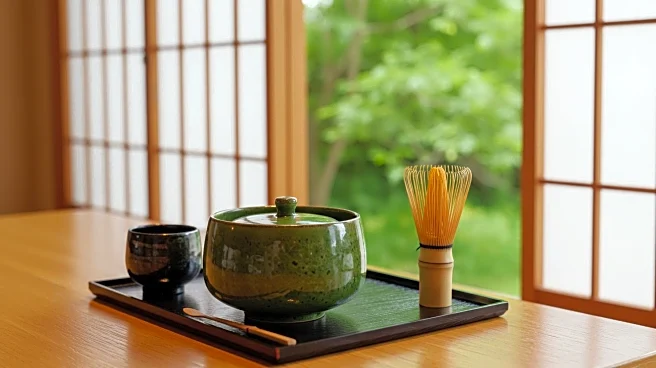What's Happening?
The global demand for matcha, a finely ground Japanese green tea, is causing concern among traditional tea ceremony practitioners in Japan. Matcha has become popular in various products, from lattes to desserts, leading to increased production and export. The Japanese agricultural ministry is supporting farmers to switch from regular green tea to matcha to meet demand. However, there is skepticism among tea ceremony experts about the commercialization of matcha, which is traditionally used in ceremonial settings. The surge in matcha's popularity is seen as both an opportunity and a challenge for preserving cultural practices.
Why It's Important?
The matcha boom represents a significant shift in global tea consumption patterns, impacting Japan's agricultural and cultural sectors. While increased demand can boost the economy and promote Japanese culture, it also risks diluting traditional practices associated with the tea ceremony. This situation highlights the tension between cultural preservation and commercial interests, raising questions about how traditional practices can adapt to modern consumer trends.
What's Next?
Japan may continue to promote matcha as a global brand while ensuring the sustainability of its production. Efforts to balance commercial success with cultural preservation could lead to new strategies in marketing and education about the traditional tea ceremony. The agricultural ministry's initiatives may expand to support farmers in maintaining quality while increasing production.
Beyond the Headlines
The matcha craze underscores broader themes of globalization and cultural exchange, illustrating how traditional products can gain new meanings and uses in different contexts. This may lead to discussions about cultural authenticity and the role of traditional practices in a modern world.











